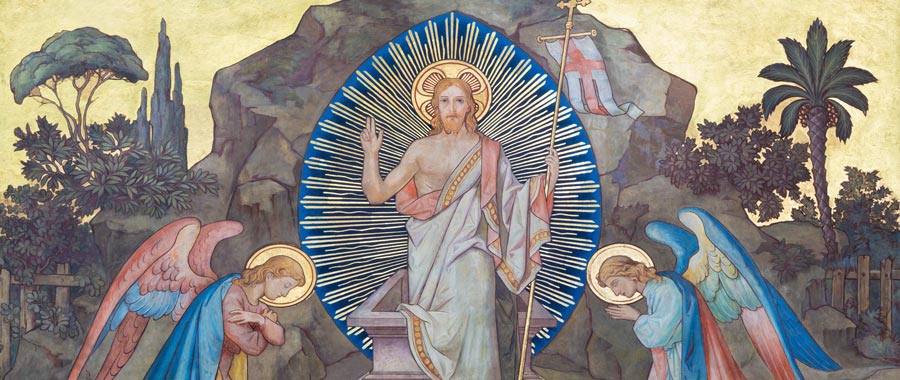The views expressed in our content reflect individual perspectives and do not represent the authoritative views of the Baha'i Faith.
The Baha’i teachings prize and encourage education. When I became a Baha’i I realized I would need more practical training and schooling – so I returned to college to get a graduate degree in chemistry education.
During my first graduate degree (I eventually earned four) I studied hard, but also enthusiastically participated in Baha’i activities on campus. During those days, I learned first-hand and for the very first time about religious persecution.
Because of my Baha’i beliefs, some very misguided Christians regularly and sometimes publicly harassed me. It’s very common for people who have had a religious experience to assume that those from another faith have not, and that those others have taken an invalid path. Since I was raised a Christian, I knew that in Christianity this kind of thing often follows from a poor interpretation of John 14:6: “I am the way and the truth and the life. No one comes to the Father except through me.”

Many Christians misinterpret this verse to mean that salvation can occur only through a belief in Jesus.
John 14:6, however, cannot be separated from John 14:1-5. These verses begin with acknowledging the disciples’ distress at recent events and Jesus counseling them:
Do not let your hearts be troubled. You believe in God; believe also in me. My Father’s house has many rooms; if that were not so, would I have told you that I am going there to prepare a place for you?“
Already, that statement works against any assertion that excludes salvation to members of other religions. Rather it acknowledges that there are many places of salvation in God’s house, and that Jesus was preparing a place for his disciples in that house.
Jesus went on to explain that he was preparing a dwelling place for his disciples in God’s house so that they could find him there after death. The verses in John 14:3-4 read:
“And if I go and prepare a place for you, I will come back and take you to be with me that you also may be where I am. You know the way to the place where I am going.“
The disciple Thomas, however, could not follow the “way” metaphor that Christ used. The next verse reads: “Thomas said to him, ‘Lord, we don’t know where you are going, so how can we know the way?’” Then comes the famous verse cited above, John 14:6.
In context then, Jesus’ “I am the way …” reply can be summarized as follows: Look disciples, when I am gone, follow my way, exemplified in my being and actions. That will get you to the new dwelling place I am preparing for you in my Father’s heavenly house. In truth, the quote has nothing to do with denying any other religion or making Christianity the only way to the truth.
Clearly, on both logical and historical grounds, spiritual salvation existed both before and after the historic Jesus lived and taught. The Hebrew Bible tells the stories of many divine agents who brought people to God long before Jesus – Moses and Abraham among them.
If you think about it, in fact, the Bible and the Judeo-Christian tradition it represents testifies to the validity of many different Faiths and their essential oneness, just as the Baha’i teachings do:
Inasmuch as the essential reality of the religions is one and their seeming variance and plurality is adherence to forms and imitations which have arisen, it is evident that these causes of difference and divergence must be abandoned in order that the underlying reality may unite mankind in its enlightenment and upbuilding. All who hold fast to the one reality will be in agreement and unity. Then shall the religions summon people to the oneness of the world of humanity and to universal justice; then will they proclaim equality of rights and exhort men to virtue and to faith in the loving mercy of God. The underlying foundation of the religions is one; there is no intrinsic difference between them. Therefore, if the essential and fundamental ordinances of the religions be observed, peace and unity will dawn, and all the differences of sects and denominations will disappear. – Abdu’l-Baha, The Promulgation of Universal Peace
As additional proof of this essential oneness of religion, the Christian New Testament includes almost a hundred prophecies about divine agents who will guide people to God after the time of Jesus. Indeed, in the New Testament, the role of bringing all people together does not belong to Jesus, but rather to his return – to the “Chief Shepherd,” as in 1 Peter 5:4 – “And when the chief Shepherd shall appear, ye shall receive a crown of glory that fadeth not away.”
Baha’is believe that the Chief Shepherd has appeared – that Baha’u’llah has come to guide humanity, once again, to that spiritual crown of glory:
The Prophets and Messengers of God have been sent down for the sole purpose of guiding mankind to the straight Path of Truth. The purpose underlying Their revelation hath been to educate all men, that they may, at the hour of death, ascend, in the utmost purity and sanctity and with absolute detachment, to the throne of the Most High. The light which these souls radiate is responsible for the progress of the world and the advancement of its peoples. – Gleanings from the Writings of Baha’u’llah
The Baha’i principle of progressive revelation teaches this truth: that God’s soteriological activities have never been limited to a single person in a single time.
A common Christian rejoinder is that Jesus is the only way to God because he was really speaking as God’s preexisting Word or Will. That is true, but that Word did not speak only through Jesus. It spoke both before and after the historical Jesus. The process of salvation is very old, necessarily eternal, and always calling to all.

Baha’is do not think that Jesus was just a philosopher, preacher, good man or occasional prophet. They view Christ as an infallible agent of God and maintain that his words are holy, transformative and binding. Salvation, Baha’is believe, depends upon acceptance of the spiritual authority of God’s chosen agents and in following their commands. These agents, however, follow one another in time, and it is important not to blind ourselves to the signs of the times and to recognize when a divine agent has come. When they appear, as Jesus explained, a new place must be prepared in heaven for those who respond to the Chosen One of the age.
Given this understanding that a new Chosen One had come, I had little recourse than to suffer through the harassment and persecution I experienced as a Baha’i. I had to learn to carry that cross. No real religion has appeared without its members being persecuted by members of previous religions. For Baha’is this is true to an extreme degree, but it cannot be seen as a source of separation from others:
They that are endued with sincerity and faithfulness should associate with all the peoples and kindreds of the earth with joy and radiance, inasmuch as consorting with people hath promoted and will continue to promote unity and concord, which in turn are conducive to the maintenance of order in the world and to the regeneration of nations. Blessed are such as hold fast to the cord of kindliness and tender mercy and are free from animosity and hatred. – Baha’u’llah, Tablets of Baha’u’llah
You May Also Like
Comments

















"Your father Abraham rejoiced that he would see my day. He saw it and was glad.” So the Jews said to him, “You are not yet fifty years old, and have you seen Abraham?” Jesus said to them, “Truly, truly, I say to you, before Abraham was, I am.”(John 8:56-58)